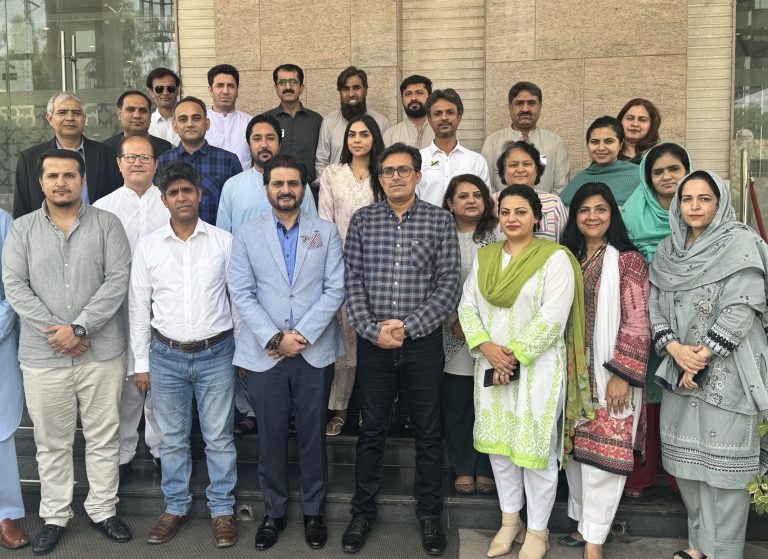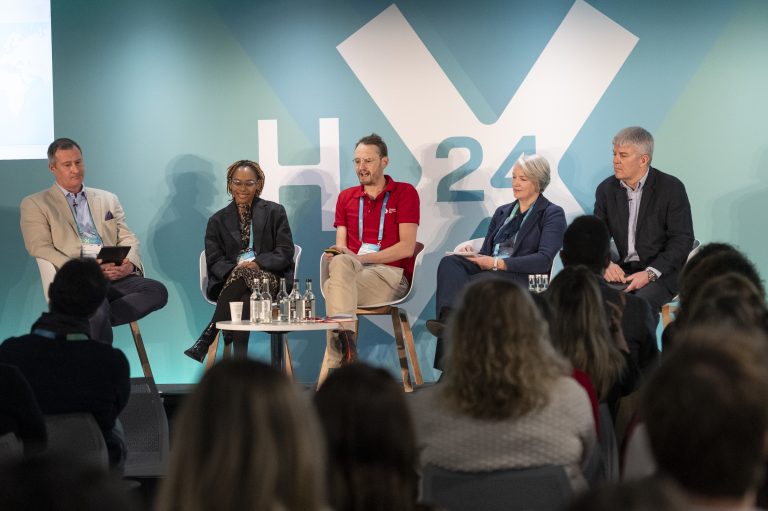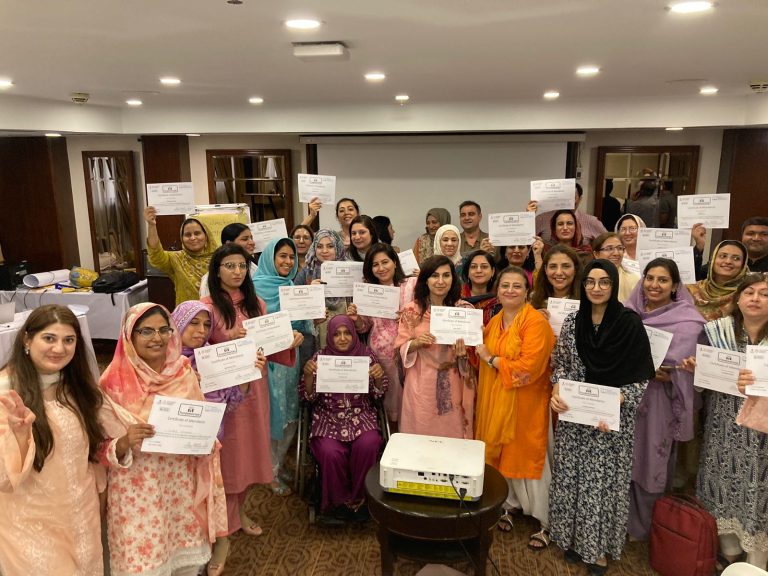Launch of an Online Learning Hub for Civil Society Organizations
London, UK, 24 May 2022 – Save the Children’s Humanitarian Leadership Academy has partnered with the Islamic Development Bank (IsDB) and the Islamic Solidarity Fund for Development (ISFD), to provide civil society organizations with resources to support their learning and capacity-strengthening needs through an exciting initiative called ‘TADAMON’.
TADAMON is a partnership program sponsored by ISFD, managed by IsDB, and implemented by the United Nations Development Program (UNDP) and other strategic partners. It aims to reach hundreds of civil society organizations in 57 Member Countries of the Organization for Islamic Cooperation (OIC).
To support the learning needs of these organizations, a dedicated online learning hub has been created on Kaya, the Humanitarian Leadership Academy’s online learning platform.
Kaya is accessed by over 530,000 registered users from over 190 countries and offers over 450 courses in up to 12 languages. This dedicated TADAMON online learning hub was launched on 18th May and made accessible for all the organizations participating in the TADAMON Program.
The TADAMON online learning hub comprises a suite of online courses and content specially curated for civil society organizations. The subject areas have been selected based on input from participating organizations through a Learning Needs Assessment, and include key topics such as Leadership, Resource Mobilization, Program Development, People Management, Performance, and Well-being.
Gareth Owen, Humanitarian Director at Save the Children UK, said:
“The TADAMON online learning hub on Kaya, under the partnership between IsDB-ISFD and the Humanitarian Leadership Academy of Save The Children, is key in providing civil society organizations participating in the Programme with quality resources to support their individual and organizational learning and capacity strengthening needs through bespoke learning pathways.”
Completing online courses on the hub will be certified with digital badges available to share online and on paper, using HPass, the Humanitarian Leadership Academy’s accreditation platform which offers humanitarians a space to showcase their expertise.
Tim Carpentier, Learning Solutions Specialist at the Humanitarian Leadership Academy said:
“Collaboration is the cornerstone of the Academy’s work. Partnering with IsDB and ISFD provides an amazing opportunity to connect with hundreds of organizations in 57 countries and adapt the learning content available to their specific contexts and needs. Based on our own learnings, experience, and sector-wide data, we strongly believe that the TADAMON online hub will support locally-led, accountable, and equitable humanitarian response by making information, knowledge, and skills available for all participating organizations.”
A representative of IsDB said:
“The Islamic Development Bank (IsDB) and the Islamic Solidarity Fund for Development (ISFD) in collaboration with the Humanitarian Leadership Academy are excited to announce the launching of the TADAMON online learning hub for civil society organizations that was designed to be accessed from phones, tablets, laptops, and PCs so that users may access it whenever and wherever they are. The hub aims to reach hundreds of civil society organizations in 57 OIC Member Countries to support the learning needs of these organizations and reduce poverty in IsDB member countries through the development and humanitarian initiatives. It supports them in increasing the education of refugees and remote communities, creating jobs, building resilience, and contributing to more robust community livelihoods.”
Notes to editors
About the Humanitarian Leadership Academy
The Humanitarian Leadership Academy is a global learning initiative set up to facilitate partnerships and collaborative opportunities to enable people to prepare for and respond to humanitarian crises and development challenges in their own countries. The Academy aims to support the needs of individuals and organisations by facilitating access to learning resources, platforms and tools. This enables locally relevant capacity-sharing and mutual learning.
Kaya is the Academy’s online learning platform, designed specifically for humanitarian and development professionals and volunteers to access relevant, up-to-date learning content covering a broad range of general and technical subjects. Kaya is accessed by over 530,000 registered users from over 190 countries and offers over 450 courses in up to 12 languages. The Kaya interface itself is available in Arabic, French, English and Spanish.
HPass is a digital platform for humanitarians to showcase their skills and expertise. Badges awarded can be shared online or printed as with normal paper certificates. The initiative promotes transparent and efficient recruitment, by enabling humanitarians to quickly provide verifiable evidence of their skills as they transition between organisations and locations.
About the Islamic Development Bank (IsDB) Group
Rated AAA by the major rating agencies, the Islamic Development Bank is a multilateral development bank that has been working for over 45 years to improve the lives of the communities it serves by delivering impact at scale. The Bank brings together 57-Member Countries across four continents, touching the lives of 1 in 5 of the world population. Its mission is to equip people to drive their own economic and social progress at scale, putting the infrastructure in place enabling them to fulfil their potential. Headquartered in Jeddah, Kingdom of Saudi Arabia, IsDB has regional hubs and centers of excellence in 11 of its Member Countries. Over the years, the Bank has evolved from a single entity into a group comprising five entities: Islamic Development Bank (IsDB), the Islamic Development Bank Institute (IsDBI) tasked with research and training, the Islamic Corporation for the Insurance of Investment and Export Credit (ICIEC), the Islamic Corporation for the Development of the Private Sector (ICD), and the International Islamic Trade Finance Corporation (ITFC).
About the Islamic Development Fund for Development (ISFD)
The Islamic Solidarity Fund for Development (ISFD) is dedicated to reducing poverty in its member countries by promoting pro-poor growth, emphasizing human development, especially improvements in health care and education, and providing financial support to enhance the productive capacity and sustainable means of income for the poor, including financing employment opportunities, providing market outlets, especially for the rural poor and improving basic rural and pre-urban infrastructure.
Media Contacts
Humanitarian Leadership Academy
Anne GARCON, Head of Communications and Marketing
Related News

Preparing for climate-induced challenges and emergency humanitarian response in Pakistan
19th July 2024

Humanitarian Xchange named Best Charity Event/Event for Positive Change in the Conference and Event Awards
17th July 2024

Innovative Education in Emergencies training approach for women in Pakistan
12th July 2024